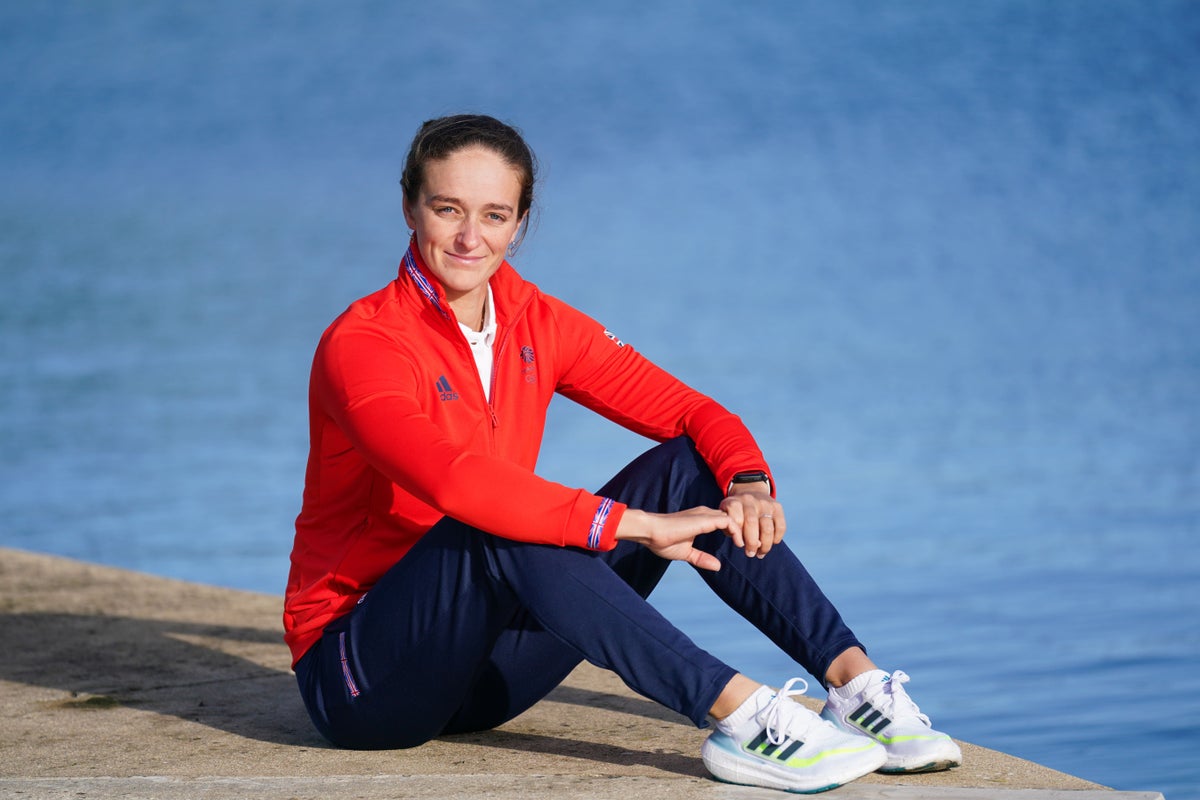
Mallory Franklin said the excitement surrounding kayak cross debuting as an Olympic event in Paris is because competitors are still figuring out how best to approach it.
Next year’s Games will see the event which was previously known as extreme slalom feature for the first time as a combination of white water disciplines.
Franklin, who won silver for Team GB in Tokyo in 2021 in the canoeing C1 event, has been selected as part of the slalom canoe squad and will look to go one better in Paris whilst also aiming for the podium in kayak cross.
And she observed that amongst her and her fellow competitors, there is a sense of stepping into the unknown, with the wider sport’s understanding of the new discipline still in a process of evolution.
“Kayak cross is still actually very new, and exactly how to train best for it and perform best in it is reasonably unknown,” the 29-year-old said.
“I went into Tokyo doing a debut event and now going into Paris doing a debut event. C1 at Tokyo wasn’t much of a variation, but kayak cross is very different. Within our races, it’s still developing. The rules are changing.
“It feels a bit hard to bring that into the Games, but that kind of allows so much freedom in how you choose to go about it.
It’d be really cool to be that first person in the (medal) list.— Mallory Franklin
“I can understand why people really like it. I think it can give quite a lot to slalom and give that level of excitement that other disciplines don’t give.
“It’s a funny thing because it seems like you’re doing (canoeing and kayaking) side by side but you aren’t, because we train in the morning then in afternoon, and each time you arrive at one of those sessions it’s new and it’s fresh and it may as well be a different day.
“It’d be really cool to be that first person in the (medal) list.”
Franklin was announced as one of the four-competitor canoeing squad for Team GB alongside Kimberley Woods, Joe Clarke and Adam Burgess.
Despite her success in Tokyo this will be her first experience of an Olympics in front of a crowd, after the last addition was held without spectators due to the Covid pandemic.
“I’m going for the classic ‘ignore (the crowds)’,” she said. “I haven’t experienced anything massively like it. I did go to London to watch some of the canoeing but I was young and don’t remember it very well.
“The weird thing with Tokyo was being sat in the start line and realising the camera was in my face, the number of people on the other side of that. That indirectly put pressure on me.
“Loads of these people care about what I’m going to do for the next two minutes, but it affects none of their lives except me.
“Trying to bring that feeling to when there are people physically there. A lot of them might get mad or dead angry or happy depending on the outcome, but it’s only for those two minutes.
“To focus on me and how I want to come out of that I’ll basically just have to ignore the humans.







